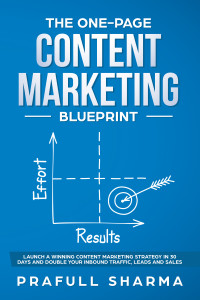Is B2B Case Study Writing Still Relevant?
The B2B industry is bursting at the seams with options for creating content; the evolution of technology has added a new set of arsenal that B2B content marketers can utilize to hit the target and make the sale. Social media, email newsletters, and podcasts are just a few of the ways B2B content marketers are able to reach through the screen and grab the attention of potential buyers, channels which were unthinkable just a decade or so ago.
Definition of a B2B Case Study
B2B Marketing helps to define a B2B case study for the industry, describing it as a powerful way for a company to demonstrate what it can deliver, not necessarily what it can offer. According to author Ardi Kolah, a smart case study will include:
- The problem or challenge a customer is facing
- The customer’s search for a solution
- The company’s response and solution
- The results and benefits, including the impact on the client
- The potential for opportunity as a result
In an age of mobile business and more research being done before a potential customer even reaches your company, are B2B case studies even relevant?
When you think of B2B case studies, it may cause you to stifle a yawn or start thinking instead about the pile of work that needs to be completed by the end of the week. But considering the fact that 77% of B2B marketers use case studies as a content marketing tactic, and more than half claim them to be effective is evidence that maybe B2B case studies are not ready for the burn pile just yet.
1. A Case Study Can Help Build Trust
Who better to give witness to your company’s expertise and quality service than other customers? Anyone who is seeking to partner in business with a company wants be assured of a sense of trust on each step of the journey. Sometimes this is only achieved through experience but adding in an outside voice that will speak to your trustworthiness is a powerful tool.
2. A Case Study Can Strengthen Your Reputation
When written well, a quality case study can communicate all of the positive aspects of your expertise and professionalism. When you begin with a satisfied customer and build on the results he or she experienced, you can piece together a compelling story that builds your company’s reputation.
3. A Case Study Can Present Your Company as a Solution
When your case study includes the elements listed above (problems and challenges, solutions, and benefits) in the form of an interview with a past client, your credibility is boosted. Any support which builds on your company’s ability to solve problems efficiently and effectively has the potential to present your company as a real solution. What was your response to the client’s problem?
4. A Case Study Should Tell a Compelling Story
The goal of a good story is to draw the reader in and engage the audience in a relevant and authentic manner. An effective story has:
- Character (Client)
- Plot (What situation was your client facing?)
- Setting (Any helpful background information)
- Conflict (What problem did the customer have? What answers were they looking for?)
- Resolution (How did your business provide the solution?)
Using Case Studies to Produce Results
When buyers of professional services were recently surveyed about marketing, the results showed that a reputation of producing results (47% of respondents) was more preferable than pursing a personal relationship (14%) in the marketing process.
Do not miss the opportunity to input quotes from clients, use relevant evidence, and factor in credible input as another source of authority in your writing.
Knowing this preference, a well-written B2B case study as a content marketing tactic can be a valuable tool in building trust, strengthening your company’s reputation, and shining a light on your business as a solution to potential customers’ needs.
Share This Story
Get the latest growth ideas, strategies, and best practices delivered to your inbox.
Quick read that helps 7000+ subscribers.









